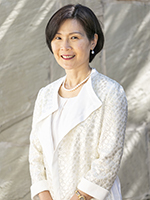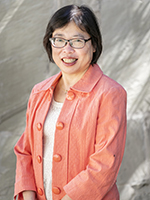Addressing cultural fears of talking about death and dying in aged care
A guest blog by Ada Cheng, ANHF Chief Executive Officer and Jenny Chua, General Manager, ANHF Residential Aged Care
Most Chinese people believe it is taboo to talk about death when the person is still alive, so our team were finding it culturally challenging to discuss end of life documentation, death and dying with residents and their families. As one of the largest providers of culturally and linguistically diverse aged care in Australia, most of our residents are from Chinese, south-east Asian and Vietnamese backgrounds, so we knew that death and dying was often hidden from view and only rarely discussed.
Many of our staff have been providing palliative care to residents at the facility for years but found it difficult to talk about death and dying due to beliefs that it would bring grief, sadness, and fear to people. Our staff found it hard to bring up the topic of death and were unsure of the different terminology they had heard about palliative care, for example ‘advance care directive’, ‘advance care plan’ and ‘end of life care’.
Unfortunately, this meant that any discussions about death were often deferred to a critical stage of the resident’s life, and this often resulted in their end of life care being administered in a hospital, usually without involving the dying person in the conversation at all. As we weren’t talking about death until the very end of life, our residents and their families did not know what kind of care and support they could obtain if the resident decided to remain at the facility during the end of life stage, and many of them were being unnecessarily transferred to hospital.
When we conducted a self-assessment audit on compliance against the Aged Care Quality Standards, advance care planning and palliative care were key areas identified for improvement particularly in navigating cultural barriers surrounding advance care planning discussions. Ensuring staff were able to assess early signs of health care changes was a key area requiring improvement – we just weren’t sure how we could do this well.
Our team worked with the ELDAC team and resources to address cultural barriers around advance care planning discussions. We wanted our clinical team to have the confidence to care for older people, to be able to detect changes in health care, notice when there’s a change or deterioration in health, and intervene. To achieve this, we made palliative care a priority by appointing several new roles including a Palliative Care Co-ordinator to provide leadership at the organisational level, and we also formed a Palliative Care team at each site to improve our focus on palliative care.
We also identified a palliative care champion at each of our sites and developed a specific role description. For example, Grace Liu was a newly graduated Registered Nurse with less than one-year aged care experience when she was nominated and supported by her Facility Manager to take up the Palliative Care Champion role. We witnessed her growth in confidence, knowledge, and skills in palliative care, and she is now the facility’s ‘go-to’ person for advice and information.
By talking about palliative care and making it a normal part of our facility, death is no longer a taboo in our daily conversations. Our staff feel very comfortable talking about death, and are happy to support the dying person, to recognise and respond to their end of life needs and are open to having discussions about how the resident wants to be cared for and about their worries and fears.
Our palliative care teams at each of our sites continue to be recognised amongst our team as a speciality area to support our residents and family members and continue to grow the passion, interest, and knowledge of palliative care in our facilities. The team meet regularly, develop continuous improvement plans, and evaluate action. Our community and staff are responding positively to the changes. We have greatly improved our end of life care as a result of talking openly about death and dying, and no longer considering it a cultural taboo.
This blog originally appeared in the ELDAC Linkages Program case stories booklet and has been republished with permission as part of the ELDAC My Care Matters campaign.

Ada Cheng
ANHF Chief Executive Officer

Jenny Chua, General Manager
ANHF Residential Aged Carer